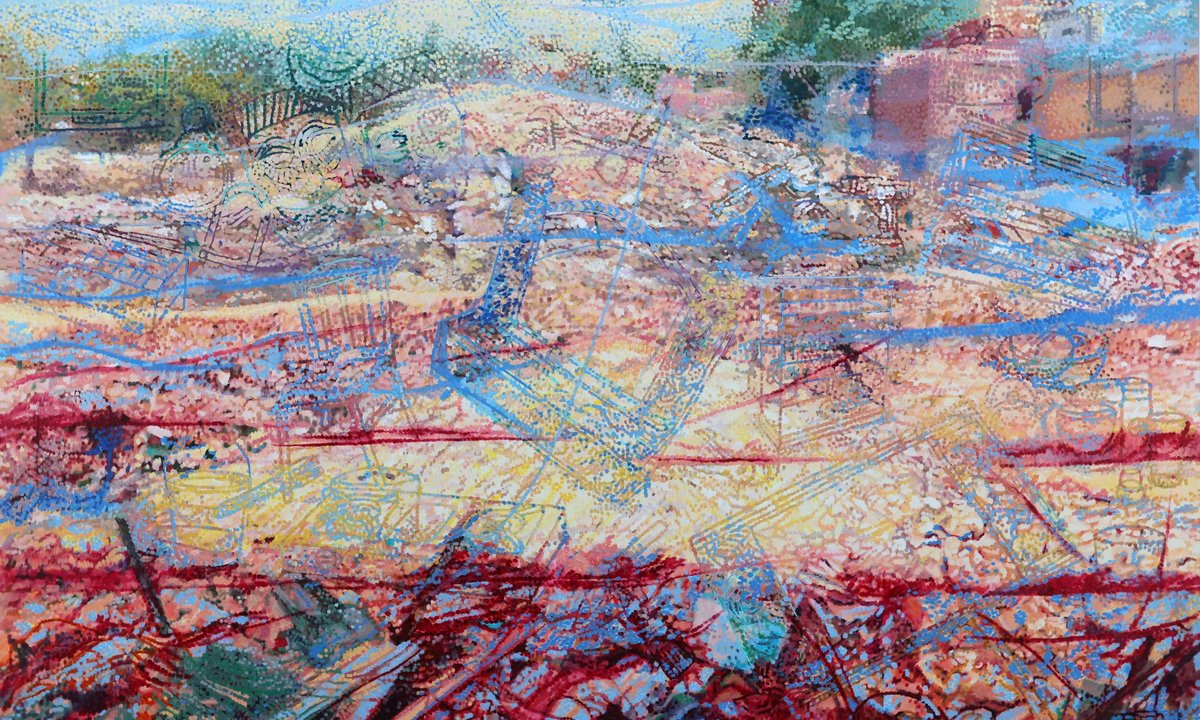
"Timeme Mohanty, a three-year-old cancer survivor in Delhi, struggled to pedal his bicycle in a circle for days. When he finally succeeded, he yelled: "I rescued speed altogether." His father, the artist Paribartana Mohanty, thought this was an absurd statement, and hence, an apt title for his solo show, now on view at the Delhi gallery Shrine Empire. The exhibition comprises 12 large paintings and three moving-image works,"
"Forced evictions and demolitions targeting marginalised communities for "redevelopment" are not new in India. One such case was the Kathputli colony, a slum cluster in west Delhi, which had a rich history spanning decades. Known as one of the world's largest settlements of street performers-puppeteers, acrobats, magicians and musicians-large parts of the colony were razed by late 2017 as part of a redevelopment drive."
"The term "bulldozer injustice"-the suggestion that the bulldozing of homes is being employed as form of extrajudicial punishment-has become closely associated with demolitions in India, according to civil and human rights groups. Over the past four years under the Bharatiya Janata Party government, the homes of Muslims in several states ruled by the party have been demolished following protests against communal violence or episodes of communal violence. Authorities have denied this targeting, and claimed that the demolitions only aim to remove illegal encroachments."
Paribartana Mohanty titled his solo exhibition I rescued speed altogether after his three-year-old son shouted the phrase. The show at Shrine Empire in Delhi features 12 large paintings and three moving-image works created over eight years of documenting and researching the demolition of the Kathputli art colony. Large parts of the slum settlement of street performers were razed by late 2017 as part of a redevelopment drive. Residents claimed due process was not followed and that displacement destroyed livelihoods, with many resettled in other west Delhi slums. The term 'bulldozer injustice' has become linked to such demolitions amid allegations of targeted action against Muslims; authorities deny targeting. Several paintings are mounted on objects found amid demolitions, including glue cans and plastic.
Read at The Art Newspaper - International art news and events
Unable to calculate read time
Collection
[
|
...
]